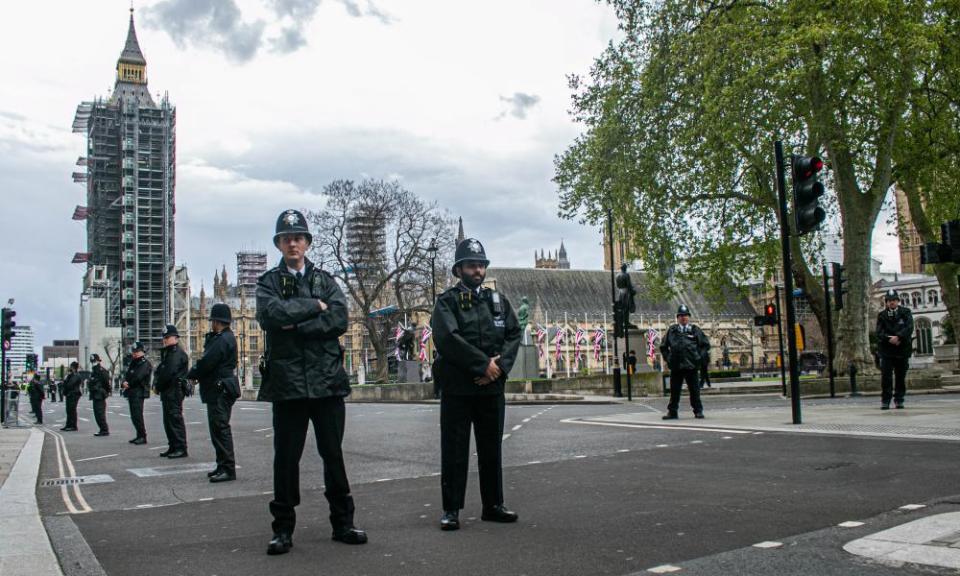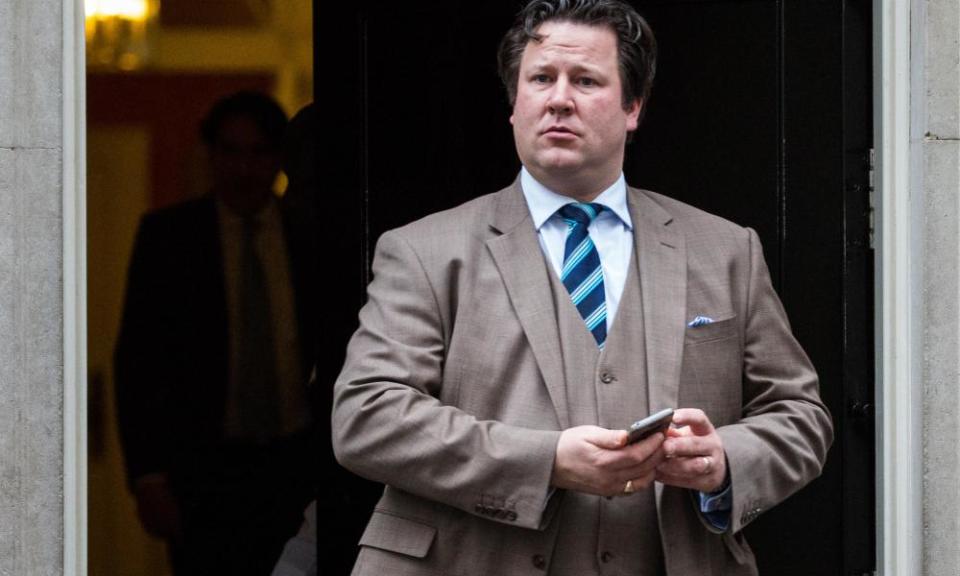Abuse, threats, aggression: the fear that stalks MPs on Britain’s streets

The constituent who “sidled up” to an MP to describe his make of car and where he had been driving it over the weekend… Another who warned an MP that they knew which school her children attended… An MP forced to act as a security guard at his own constituency surgery, ejecting someone who had become aggressive and abusive… Family members confronted … Staff regularly abused.
As MPs contacted each other to discuss the horrific news that another of their number had been killed while fulfilling their basic duties, the list of their own grim experiences flowed immediately and at length. “Talking with colleagues this afternoon, there isn’t one of us, not one of us, who couldn’t give you a list of alarming examples of things that have been said or done in a constituency surgery,” said a cabinet minister.
Sir Charles Walker, who sits on the House of Commons Commission, which looks at MPs’ security and which will meet on Monday, said he was appalled by the number of MPs who were reporting threats and abuse to the Commons authorities. “Living in fear has become a routine part of many of my colleagues’ lives,” he said. “Many have the incredible ability to compartmentalise that part of their existences but it should not have to be that way.”
After the initial shock and despair after the death of Sir David Amess, MPs’ private WhatsApp groups were soon filled with some openly stating that they may move out of their constituency on safety grounds, and others stating that they did not know whether they could continue any walk-in surgeries.

Some MPs said they had already switched to appointment-only surgeries to limit the risks against them and changed to more secure venues. “We try and manage by doing as much over the phone these days, or, if meeting, we do it in the office now, not empty halls,” said one former minister. “At least we have panic buttons.” What is “normal” to MPs would be alarming to most. All said that online abuse was common, while having to inform police about a threat or aggressive behaviour was not an unusual occurrence.
While the murder of Jo Cox in 2016 led to tightening security and the centralisation of complaints of abuse against MPs, there is significant variation among MPs about how they conduct their constituency business and little agreement on how to make life safer now.
“All my surgeries are by appointment and we don’t announce location and time in advance,” said one former minister. “I suspect it will have to be this way.” Another Tory MP said: “I only do a conventional appointment-only surgery once a month now, but most Saturday mornings I do street surgeries in the middle of high streets and farmers’ markets where anybody can approach me and councillors – and that is what is so important about them.”
Some were keen to show defiance on Saturday. Alec Shelbrooke, the Tory MP for Elmet and Rothwell, was among those to press ahead with a constituency surgery. “We cannot let events like this diminish the deep relationship between an MP and their constituents,” he said. “I want my constituents, regardless of whether they voted for me or not, to be able to approach me in the street, in the pub, at the supermarket or at one of my surgeries.” Robert Largan, Conservative MP for High Peak, also went ahead with meetings, and said he wanted to “stand up for democracy”.
However, for some time there has been evidence of a rising tide of abuse and aggression shown towards MPs. Spending on MPs’ security has seen a huge expansion in recent years, largely as a result of measures taken in the wake of Cox’s death. In 2015-16, the amount spent on MPs’ security was just £171,000. By 2017-18 that had increased to £4.2m. Panic buttons were installed, constituency doors were strengthened and alarm systems improved.
According to Metropolitan police data, MPs reported 151 alleged crimes to the police in 2017, rising to 342 in 2018 – a 126% increase. A 2019 survey of MPs by the BBC found that more than 60% of those who responded had contacted the police about threats received in the previous year.
“When people have surveyed MPs about the kind of level of number of threats they receive, the amount of abuse that they receive, it seems to indicate that in the last five or six years, things have worsened,” said Alice Lilly, senior researcher at the Institute for Government. “I think the debate is likely to be about whether further practical measures ought to be taken. Should there be some kind of scaling back and face-to-face meetings? I think that’s something that a lot of MPs are pretty reluctant to do.”
Members said the number of incidents they and their staff face daily, with abuse online and death threats, seems to grow all the time. “It is a complete epidemic,” said one senior MP. “The numbers of people now in prison or facing trial for abusing or threatening MPs is huge. It is a British disease.”

Several MPs pointed to a failure by police to take the threats against them more seriously. While some had good experiences, others said that they were only contacted at moments of high risk - such as last week’s attack - and were often simply asked by officers: “What action would you like us to take?”
One MP said she had stopped reporting instances of concern after becoming frustrated with the response: “Parliamentary police and local police are often at loggerheads and there is no consistency in risk assessment as a result,” she said. “I have given up reporting stuff because both blame each other and neither think you are at risk unless someone actually comes at you.”
A former staffer for Paula Sherriff, the ex-MP who had swastikas left on the doorstep of her office, said that police had laughed at a message he had left outlining a threat against them.
Sherriff said: “For now, we mourn our lovely friend David Amess but it is patently clear that different police services offer an inconsistent approach in dealing with threats to MPs, and this must change.” Many MPs said the threats to their staff were often as bad as the ones they had faced.
Another issue repeatedly cited by MPs on Saturday was the inflammatory language used by their own colleagues, including Boris Johnson and senior Labour figures such as Angela Rayner, who was criticised for describing Tories as “scum” during her party conference.
Sherriff confronted Johnson over his rhetoric in 2019, warning that words like “surrender” were raising the temperature and reminding him what happened to Cox. The PM ismissed her plea as “humbug”.
“The language of politics over quite a long time has created a situation where people think that an MP is fair game,” said a cabinet minister. “It is something we need to have another think about.”
Shailesh Vara, the Tory MP for North West Cambridgeshire and a former minister, said the kind of language used by people when communicating with MPs either on social media, or by other means, was becoming more hostile and aggressive all the time. “To call me the C-word, or to refer to politicians as bastards, and to use unpleasant and aggressive tones is normal for some people these days.”
Several MPs pointed out that his accessibility to the public was what made Amess such a good backbench MP. “We try to be, as constituency MPs, recognisable, available, accessible to all,” said a minister. “A successful constituency MP is the person who people feel they can go up to in the pub or, as frustrating as that sometimes is, come up to you when you’re doing your shopping. We don’t want to be speaking to people through plate glass or have two burly security guards. Maybe the days of walk-in surgeries are over – but someone committed enough [to do harm] will find another way.”
On Saturday, all government communications were suspended. A rash of planned weekend announcements on green issues was postponed and other policy launches were put back.
On Monday the Commons authorities had been planning tributes to former Home Office minister James Brokenshire, who has died of cancer, but now have to rethink and set aside enough time to mark and debate Amess’s killing, and for a debate on the implications.
When MPs paid tribute to Cox in 2016, it was a hugely emotional event with many in tears and wearing the white rose of Yorkshire. Monday will be another such day. “Monday is going to be a very sombre day indeed in parliament,” said Walker.

 Yahoo News
Yahoo News 